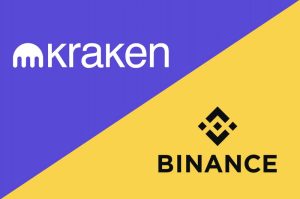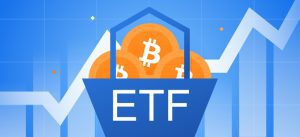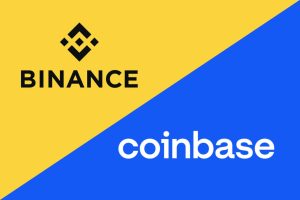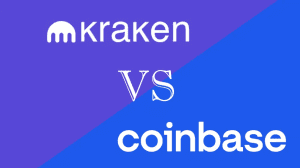What Is DeFi? Decentralized Finance Explained

Decentralized Finance, or DeFi, is an innovative concept that has taken the finance world by storm. It harnesses the power of blockchain technology to offer a wide array of financial services and applications without the need for traditional intermediaries.
This article covers everything you need to know about DeFi, how it operates, and its advantages and disadvantages. We also highlight the key differences between DeFi and Centralized Finance (CeFi) and the diverse uses of DeFi in today’s financial landscape.
All About Decentralized Finance – The Short Version
Our brief summary contains valuable insights on DeFi.
- DeFi is an innovative concept harnessing blockchain technology to offer financial services without traditional intermediaries.
- It operates on public blockchain networks, with Ethereum being a prominent platform, and smart contracts power the DeFi ecosystem.
- DeFi enables open and permissionless access to financial services, promoting financial inclusion for the unbanked and underbanked.
- Users interact with DeFi applications through blockchain wallets, retaining complete control and custody of their funds.
- DeFi use cases include decentralized exchanges, lending and borrowing, yield farming, decentralized insurance, prediction markets, and tokenization.
What is DeFi?
Decentralized Finance (DeFi) is a revolutionary paradigm that leverages blockchain technology to provide a wide array of financial services and products without the involvement of traditional intermediaries. It represents a new and inclusive approach to finance, offering open and permissionless access to a decentralized ecosystem of financial applications.
DeFi relies on public blockchain networks, with Ethereum being the most prominent and widely used platform. Ethereum’s programmability through smart contracts is a fundamental aspect that powers the DeFi ecosystem. Smart contracts are self-executing codes that automatically enforce an agreement’s terms and conditions. As a result, there’s no need for intermediaries or centralized authorities.
In traditional finance, financial services are subject to several restrictions, like geographical location or institutional access. Meanwhile, DeFi is accessible to anyone with an internet connection. Therefore, it is a reliable and ideal solution for people without bank accounts or similar services.
How Does DeFi Work?
Users interact with DeFi applications using blockchain wallets, such as MetaMask, which enable secure and direct communication with smart contracts. These wallets serve as the gateway to the DeFi ecosystem. It allows users to manage their digital assets, execute financial transactions, and engage with various DeFi protocols.
The decentralized nature of DeFi platforms means that users retain complete control and custody of their funds. They do not need centralized third parties to hold or manage their assets. Accordingly, it reduces counterparty risks and enhances financial autonomy.
Another crucial DeFi attribute is transparency. Blockchain networks are public and record all transactions and activities, which means anyone can see them. It creates trust and confidence among users, as they can independently verify the integrity of the DeFi ecosystem.
Pros
- Financial inclusion: DeFi promotes financial inclusion by providing services to people without access to banking solutions.
- Accessibility: DeFi platforms are accessible 24/7, allowing users to transact and access financial services at all times.
- Lower costs: DeFi eliminates the need for intermediaries, reducing transaction fees and operational costs.
- Transparency: The blockchain records all transactions on DeFi platforms, ensuring transparency and auditability.
- Programmability: DeFi’s use of smart contracts enables automation and customized financial solutions.
Cons
- Security risks: Smart contract vulnerabilities and hacks threaten DeFi platforms and user funds.
- Limited regulation: DeFi operates in a relatively unregulated space, leading to potential challenges in addressing fraudulent activities.
- High volatility: DeFi tokens can experience extreme price fluctuations, leading to potential investment risks.
DeFi vs. CeFi
Decentralized Finance (DeFi) and Centralized Finance (CeFi) represent two contrasting approaches to financial services. Each one has its unique characteristics and implications. As we already discussed DeFi’s attributes, here’s how CeFi compares:
- Centralized: CeFi relies on traditional financial institutions and intermediaries to facilitate financial transactions. Users typically entrust their funds to centralized platforms, ceding control and trusting the platform’s security measures.
- Regulation: CeFi platforms often operate within regulatory frameworks and undergo compliance measures. Hence, it provides security to users who prefer a regulated environment.
- Security: Centralized services usually employ security measures to safeguard user funds and prevent potential hacks or attacks.
- User experience: CeFi services generally offer user-friendly interfaces and customer support. They cater to many users, including those less familiar with blockchain technology.
- Traditional banking integration: Centralized Finance platforms can interact with the traditional banking system. Thus, users can access fiat on/off ramps and integrate with existing financial services.
Uses of DeFi
DeFi is now a popular and different method to complete financial transactions. Some of the use cases include:
- Decentralized exchanges (DEXs): DEXs facilitate peer-to-peer cryptocurrency trading without needing custodial wallets.
- Decentralized Lending and Borrowing: DeFi platforms enable users to lend or borrow digital assets through smart contracts, eliminating traditional banking intermediaries or lawyers.
- Yield Farming: Users can earn rewards by providing liquidity to DeFi protocols, which fosters the growth of decentralized liquidity markets.
- E-wallets: Developers are creating e-wallets that operate independently of centralized exchanges. These wallets give users complete control over their funds and allow them to manage their cryptocurrencies directly. It also gives them access to various assets, including cryptos, tokens, games, and more.
- Stablecoins: DeFi plays a crucial role in creating and maintaining stablecoins. Smart contracts are used to peg the value of stablecoins to non-cryptocurrency assets, like the U.S. dollar or other commodities.
- Tokenization: DeFi enables the creation of tokenized assets like NFTs that represent real-world assets like real estate or artworks.
Frequently Asked Questions
Get more information about decentralized finance.
How secure is DeFi?
DeFi security relies on smart contract audits and community-driven vigilance. Users must exercise caution and conduct due diligence.
Can I participate in DeFi without a large investment?
Yes, DeFi platforms accommodate users with small investments, enabling financial inclusion for all.
Are DeFi platforms regulated?
DeFi operates in a relatively unregulated space. As a result, users should be aware of potential risks that come with the absence of regulatory oversight.
How are interest rates determined in DeFi lending platforms?
Interest rates on DeFi lending platforms are often determined algorithmically based on supply and demand dynamics within the platform. Therefore, rates can fluctuate to changes in market conditions and user demand for borrowing and lending.
Are DeFi platforms insured against potential losses?
Unlike traditional finance, where centralized entities often provide insurance, DeFi platforms may not offer insurance. However, some protocols or third-party entities may provide insurance options to mitigate user risks. Users should research and understand the insurance coverage, if any, before participating in DeFi platforms.
DeFi Defined – Final Words
Decentralized Finance (DeFi) is transforming the financial landscape, offering unparalleled access, transparency, and autonomy to users. By leveraging blockchain technology and smart contracts, DeFi pioneers a new era of finance, empowering individuals worldwide to take control of their financial future.
While DeFi holds immense promise, users must exercise caution, perform due diligence, and stay informed to navigate this dynamic and rapidly evolving ecosystem. As DeFi continues to innovate and grow, its impact on traditional finance looks set to be genuinely transformative.





